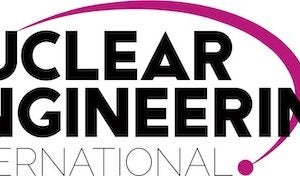
Because of the extreme conditions of nuclear systems, precision and reliability are of the utmost importance. The large forgings and exotic metals used in nuclear manufacturing are exposed to high temperatures, stress, corrosion, and irradiation, making precision lubrication essential to their performance and durability.
Precision lubrication involves using the correct type, quality, and quantity of lubricant for machinery or other equipment, as well as lubricating the correct component in the appropriate place at the right time. The main purpose of precision lubrication is to enhance the reliability and efficiency of equipment, thus reducing the rate of wear and production downtime. Precision lubrication is particularly important in nuclear manufacturing that uses large forgings and exotic metals because of the extreme stress and environmental conditions they endure. Precision lubrication plays a key role in:
- Reducing wear and tear on components
- Minimizing friction
- Enhancing corrosion resistance
- Extending the lifespan of machinery and its components
- Ensuring the safety and reliability of nuclear systems
Choosing a suitable, high-quality lubricant – such as the Consultant Lubricants graphite-based 7221 hot forging compound – and using appropriate methods of application are both crucial considerations.
The most common lubricant type is R&O (rust and oxidation) oil, used primarily in many light-duty conventional and nuclear applications. The second most common type is hydraulic fluid with anti-wear additives, which is used where there is a requirement for preventing asperity-to-asperity contact during mixed or occasional boundary lubrication. The third most common type is gear oil, which is used in most gearboxes and actuators. Other oils include compressor oils, turbine oils and transformer fluids. Typical greases used include polyurea, calcium sulfonate, and lithium complex.
Another important consideration in respect of lubrication is the role of continuous training and skill development for engineers and technicians. They are crucial for
ensuring effective lubrication practices. Specialised training programmes focused on lubrication in nuclear environments are essential. These programmes ensure that personnel are well-versed in the latest lubrication technologies, application techniques, and monitoring methods, thereby enhancing the reliability and safety of nuclear systems.
Best practices for large forgings
Best practices for large forgings include the selection of lubricants, application techniques, and monitoring and maintenance. Selecting the right type of lubricant for nuclear manufacturing is essential because it must be able to withstand high temperatures without breaking down. They also must have a high load-bearing capacity in order to endure the immense stress placed on large forgings. Application techniques for precision lubrication include manual or automated lubrication systems. Manual application using brushes or spray systems are better suited for hard-to-reach areas, ensuring that the lubricant is applied precisely where needed. Automated systems can be programmed to deliver the right amount of lubricant at the correct intervals, providing a more uniform application and consistent lubrication. Finally, monitoring and maintenance are necessary to ensure that any issues are detected and resolved early and quickly. Regular inspections and lubricant analysis should be conducted to check for signs of inadequate lubrication, contamination, degradation, and other issues. These monitoring techniques help in planning maintenance and avoiding unexpected equipment failures.
Best practices for exotic metals
Nuclear manufacturing utilises a variety of exotic metals, including zirconium, titanium, nickel, and stainless steel alloys. Their superior strength and corrosion resistance make them ideal for nuclear applications, but it is important to assess both thermal and chemical compatibility with lubricants used in manufacturing, as well as the surface treatments and applications utilised. Ensure that lubricants are chemically compatible with the specific metal to avoid compromising integrity and ensuring that the lubricants selected can perform consistently across extreme temperature ranges without thermal degradation. Polishing or coating surfaces before applying lubrication can increase bonding, which allows for more effective and longer-lasting lubrication. The correct film thickness in precision lubrication of exotic metals is also crucial – too much can attract contaminants and too little can result in inadequate protection.

The criticality of the additives in the lubricant depends on the specific application and operating environment. The concentration of the most critical additives is monitored directly or indirectly during oil analysis. In mission critical or safety related applications, the lubricant is changed frequently to ensure it performs its design function during under all circumstances, even those unforeseen. Due to close monitoring, additive levels are rarely depleted.
In nuclear power plants, the steam turbine oils, which may remain in the system for over 20 years, are regularly made up with fresh oil (usually up to 5% annually). This maintains satisfactory conditions, assuming continuous filtration system operation. Additionally, although steam turbine oil may remain in place for far longer, best practice is typically to drain the turbine oil from the reservoir every 10 years, while the reservoir is also cleaned during this maintenance interval.
Integrating lubrication with predictive maintenance
Integrating precision lubrication with predictive maintenance strategies is a significant advancement for the nuclear sector. Advanced monitoring systems and
data analytics can predict lubrication needs, identify potential issues before they cause failures, and optimise maintenance schedules. This proactive approach enhances equipment reliability and reduces unexpected downtime.
By adhering to these best practices and leveraging continuous training, advanced technologies, and predictive maintenance strategies, the nuclear industry can ensure the reliability and safety of its operations, particularly when dealing with the demanding conditions faced by large forgings and exotic metals.
Due to the specific requirements that nuclear manufacturing entails, it’s a good idea to work closely with industry experts to determine the correct lubricants and appropriate applications. They can help determine the best products and practices to use with large forgings and exotic metals to ensure the safety, reliability, and longevity of nuclear manufacturing operations and equipment.
Author: Mel Kohl, Founder, CEO and President of Consultant Lubricants






